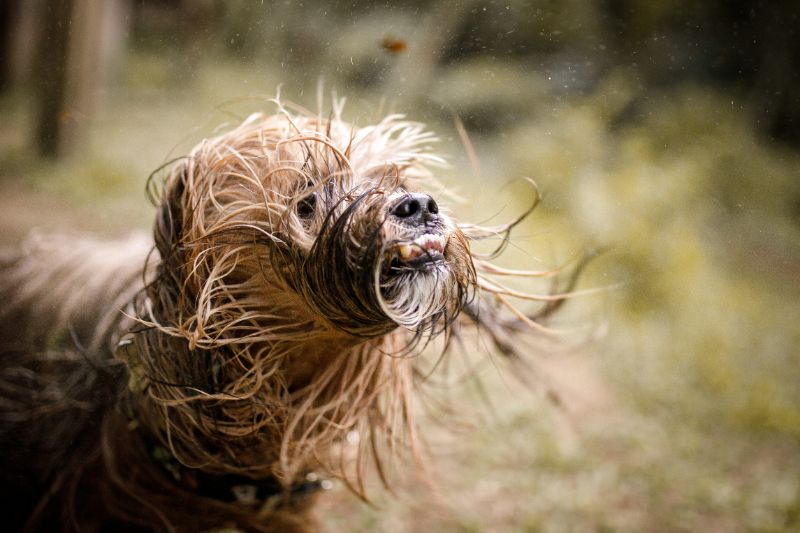Help! We’ve Been Skunked!

Nothing like a big ole whiff of skunk perfume at 10 p.m. just as your pet is coming in from its “last call” potty break, right? If you are unlucky enough to have been skunked, not to worry, Harpeth Hills Animal Hospital knows just how to help.
Skunk Perfume
If you’re not the one smelling it, skunk spray is actually pretty interesting. Skunks, much like dogs and cats, have glands on their behinds. Unlike dogs and cats, though, skunks have voluntary control of how and when they express these glands. They have been known to spray quite forcefully and very accurately up to 15 feet!
When a skunk sprays, it is a form of self defense. The spray is not in unlimited supply, either, so the skunk often gives several warnings and tries to escape before unleashing its pungent perfume. When it comes down to it, though, a skunk can spray as many as six times in a row.
Skunk spray is an oily secretion that contains sulfur compounds. The thiols in the spray are particularly stinky and bind to proteins such as those in skin. Not to be outdone, the thioacetates that are also present are ready to convert to thiols when they meet water.
Preventing being skunked is the best act. As with many things, a good defense is the best offense. Try to avoid unwanted skunk encounters by:
- Supervising your pet outdoors at dawn and dusk, peak skunk hours
- Being particularly vigilant during skunk mating season (spring) and the warm months of the year
- Removing garbage and other skunk-food sources from your yard
- Clearing brush piles and other yard debris that make good skunk homes
- Not allowing your dog to harass wildlife
- Teaching your dog a “leave it” command
Skunked. Now What?
If despite your best efforts your pet ends up in the skunked category, quick thinking is key. Do not:
- Bring a skunked pet indoors (remember that part about thiols binding to proteins?)
- Throw your pet in the tub (remember that water activates thioacetates?)
- Panic (you got this)
Sometimes a skunk will spray into the dog’s face. The spray itself is irritating to mucous membranes and could potentially cause respiratory problems, ocular irritation, or nausea. In these cases, you will want to call us right away.
We will also need to see your pet if there are any bite or scratch wounds or your pet is overdue for rabies vaccination. Our pet grooming department is happy to help as well.
If you cannot bring your pet in for de-skunking and you just need to get rid of the smell, you can definitely make some progress at home. Be sure to change your clothes so that they won’t hold the smell and pick a location for de-skunking.
Ideally you should try to deskunk outdoors. If you must bring your pet in, minimize how much interaction your pet has with your rugs, furniture, and other items that will absorb the skunk smell on the way to the tub.
Effective de-skunking requires breaking down the oils as a way to deactivate the thiols and thioacetates. To do this, you will want to:
- Wash your dog thoroughly with Dawn dish soap, then rinse until the water is soap free
- Combine four-parts hydrogen peroxide with one-part baking soda and a tablespoon of Dawn dish soap. Mix thoroughly and apply to your dog. (This combination will change the chemical makeup of the spray and allow it to wash away. It may take several passes.)
- Allow the mixture to set for 15 minutes before rinsing thoroughly
- Repeat as needed
It is important to note that peroxide may bleach dark fur. Typically, though, this is a small price to pay to be rid of the skunk smell.
Skunks are a part of our environment here in Tennessee. With some careful maneuvering, you just might be able to avoid any encounters that end in a stinky shower. If not, though, we are here to help you. Call your Bellevue vet to make an appointment today. Skunked, or otherwise!

